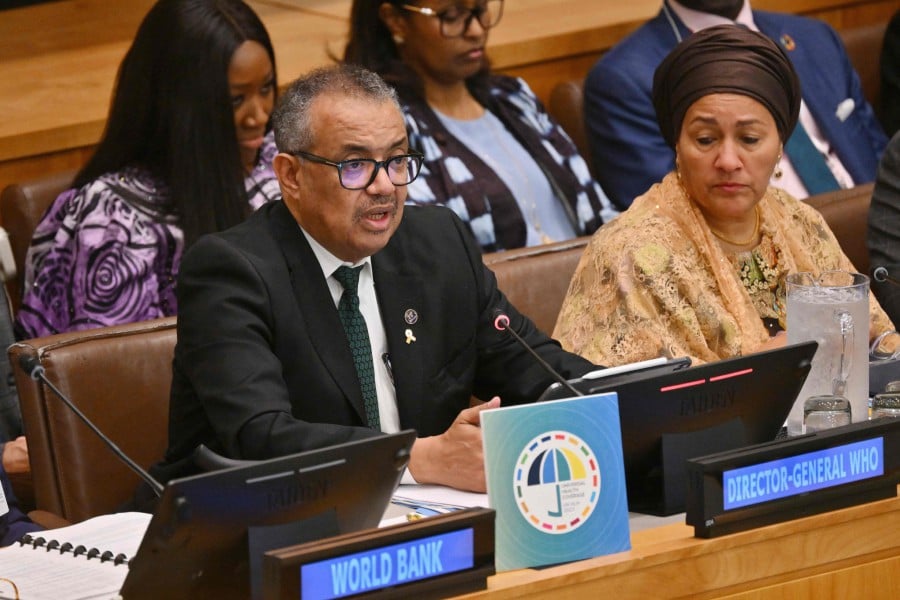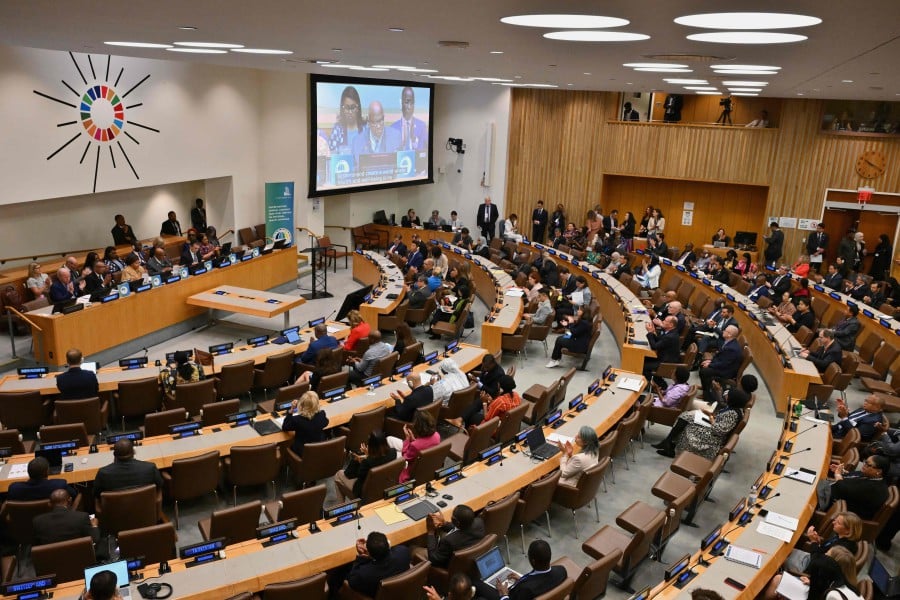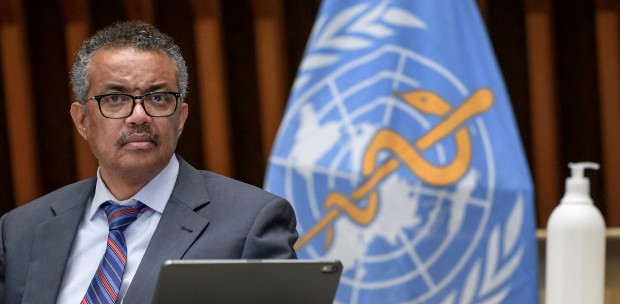UNITED NATIONS, New York: Global health leaders achieved a significant milestone on Thursday by endorsing a new political declaration aimed at accelerating progress toward universal health coverage by 2030.
The declaration, titled "Universal Health Coverage (UHC): Expanding our ambition for health and well-being in a post-Covid world," is hailed as a vital catalyst for the international community to take big and bold actions.
Its aim is to mobilise the necessary political commitments and financial investments to achieve the UHC target outlined in the Sustainable Development Goals (SDGs) by 2030.
"Ultimately, universal health coverage is a choice–a political choice," said World Health Organisation director-general Dr Tedros Adhanom Ghebreyesus.
"The political declaration countries approved today is a strong signal that they are making that choice.
"But the choice is not just made on paper. It's made in budget decisions and policy decisions.
"Most of all, it's made by investing in primary health care, which is the most inclusive, equitable, and efficient path to universal health coverage," he said in his remarks at the UN General Assembly High-Level Meeting on UHC.
The #UNGA High-level meeting on universal health coverage is about to start.
We call on leaders to ramp up their actions towards to make the #HealthForAll promise a reality! pic.twitter.com/mo5vh1RkAc— Tedros Adhanom Ghebreyesus (@DrTedros) September 21, 2023
The UHC target evaluates countries' ability to ensure that everyone receives necessary healthcare without encountering financial hardship, encompassing a wide range of key services from health promotion to treatment, and rehabilitation.
Alarmingly, global progress toward UHC had stagnated since 2015, exacerbating in 2019.
The urgency of this declaration is underscored by staggering statistics: In 2021, over 4.5 billion people, more than half of the world's population, lacked full access to essential health services.
Two billion people faced financial hardships, with over 1.3 billion pushed or further entrenched in poverty while seeking basic healthcare.
Turning point for course-correction
In the political declaration, Heads of State and world leaders committed to take key national actions, make essential investments, strengthen international cooperation and global solidarity at the highest political level to accelerate progress towards UHC by 2030, using a primary health care (PHC) approach.

WHO, in a statement, emphasised that to achieve truly universal healthcare, there must be a shift from health systems centred around diseases to systems designed to meet people's needs.
It said PHC, an approach focused on strengthening health systems based on people's requirements, is among the most effective areas for investment to expedite progress toward UHC.
Countries that have adopted a PHC approach have demonstrated better capabilities in rapidly building resilient health systems, reaching vulnerable populations, and realising greater returns on health investments, according to the WHO.
Importantly, this approach ensures broader access to essential health services and empowers individuals to participate in decisions affecting their health and well-being.
The WHO estimated that an annual investment of between US$200 billion and US$328 billion is required to scale up the PHC approach in low- and middle-income countries.
This investment, it said, could enable health systems to deliver up to 90 per cent of essential health services, save a minimum of 60 million lives, and increase average life expectancy by 3.7 years by 2030.
To facilitate this transformation, the WHO, operating through its extensive network comprising more than 150 country offices and six regional offices, offers technical support to accelerate the radical reshaping of health systems through PHC-focused approaches.
The organisation also provides robust normative guidance to track progress, ensuring accountability and tangible impact.
"WHO commends Member States for approving the second UN High-Level Meeting Political Declaration on UHC, which was developed through a broad consultative process.
"WHO is fully committed to working with Member States and partners to ramp up policy actions for UHC to expand service coverage, ensure financial protection and shape the financing architecture to invest more and better in health.
"Once adopted by the UN General Assembly, the Political Declaration will be regularly monitored for implementation to identify gaps and solutions to accelerate progress, and discussed at the next dedicated UN High-Level Meeting in 2027," the statement read.
WHO is a specialised agency of the UN responsible for international public health.
NST specialist writer Tharanya Arumugam is a 2023 fellow of the United Nations Reham Al-Farra Memorial Journalism Fellowship.






